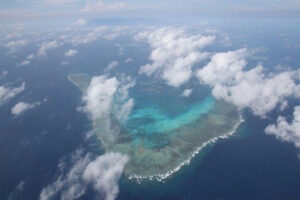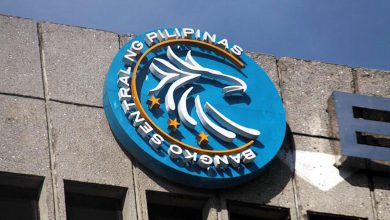Australia, Vietnam open to SCS joint security talks

By Chloe Mari A. Hufana
AUSTRALIA and Vietnam manifested on Tuesday their openness to continue maritime security dialogues on the South China Sea (SCS) with the Philippines, including talks on possible joint patrols of the region almost entirely claimed by China.
“If the Philippines asks us about [joint patrols], we will consider them,” Australian Deputy Head of Mission Moya Collett told BusinessWorld on the sidelines of the launching of an initiative to boost women’s economic development at a hotel in Makati City.
Pointing out that the defense forces of the Philippines and Australia “regularly cooperate” on such issues, the Australian envoy signaled her country’s willingness to engage in joint patrols with the Philippines.
“What I can say is that we have engaged recently in bilateral and multilateral cooperative activities in the Philippines EEZ (exclusive economic zone) and the region,” Ms. Collett said.
In November last year, a three-day Maritime Cooperative Activity fielded three warships and six aircraft of the Armed Forces of the Philippines and the Australian Defense Force for joint sea and air patrols within Manila’s EEZ in the South China Sea.
Ms. Collett stressed that her country’s interests focus on abiding by international law.
Also at the Tuesday’s event was said Vietnam Ambassador to Manila Lai Thai Binh, who told BusinessWorld that continuous dialogue exists between the Philippines and Vietnam, but that any discussion on a united front with regard to maritime disputes “needs more time.”
“Not only Vietnam and [the] Philippines [work together, but the] Association of Southeast Asian Nations countries has been working closely together to discuss the issue of the South China Sea,” he said.
Like Australia, Vietnam is committed to a rules-based approach to the maritime issue.
“I think that our policies remain constant [and] persistent. We promote the peaceful resolution of the South China Sea based on international laws, especially the United Nations Convention on the Law of the Sea (UNCLOS),” said Mr. Lai.
The Philippines, meanwhile, is slated to conduct joint naval patrols with the United States and Japan later this year.
Earlier this year, Japan urged both nations to prioritize diplomatic solutions and comply with a 2016 arbitral award over conflicting claims in the South China Sea.
“The arbitral award is final and legally binding on the parties to the dispute under the provisions of the United Nations Convention on the Law of the Sea,” the Embassy of Japan in Manila said in a statement in March in the aftermath of the Chinese Coast Guard’s (CCG) firing of water cannons at Filipino vessels on a resupply mission to a Philippine outpost in Second Thomas Shoal (Ayungin Shoal).
“Japan strongly hopes that the parties’ compliance with the award will lead to the peaceful settlement of disputes in the South China Sea,” it added.
Tensions have escalated in recent weeks, with the Philippine Coast Guard (PCG) accusing its Chinese counterpart of the latest episodes of firing water cannons at Filipino vessels to block Manila’s resupply mission to Ayungin Shoal, where it grounded a World War II-era ship in 1999 to assert its sovereignty.
In 2016, the Permanent Court of Arbitration ruled in favor of the Philippines in the disputed area, a decision China continues to reject.
NO ‘NEW MODEL’ AGREED ON DISPUTED SEA FEATURESMeanwhile, the Philippine Department of Foreign Affairs (DFA) flatly denied on Tuesday the Chinese Embassy’s claim that Manila and Bejing had agreed on a supposed “new model” for handling the situation in Second Thomas Shoal in the South China Sea.
“The Department of Foreign Affairs (DFA) wishes to emphasize that only the President of the Republic of the Philippines can approve or authorize agreements entered into by the Philippine government on matters pertaining to the West Philippine Sea and South China Sea,” it said in statement.
“The DFA can confirm that no cabinet-level official of the Marcos administration has agreed to any Chinese proposal to the Ayungin Shoal.”
The Chinese Embassy in Manila at the weekend said the Armed Forces of the Philippines Western Command had agreed with Beijing on a new model on managing the situation in Second Thomas Shoal, which Manila calls Ayungin.
The embassy did not immediately reply to a Viber message seeking comment.
Defense Secretary Gilberto C. Teodoro, Jr. on Sunday denied the claim, saying it was a “devious machination of China through their Embassy in Manila” and a “falsehood” aimed at distracting Filipinos away from China’s intrusions into the Philippines’ EEZ in the South China Sea.
“As far as the Philippine government is concerned, no such document, record or deal exists, as purported by the Chinese Embassy,” the DFA said. — with a report from John Victor D. Ordoñez




